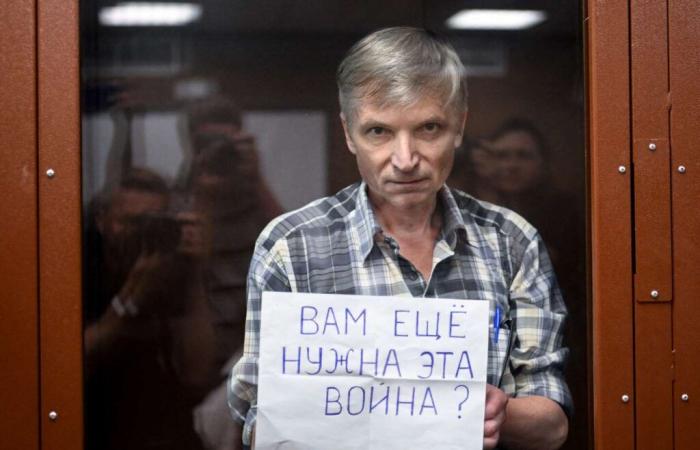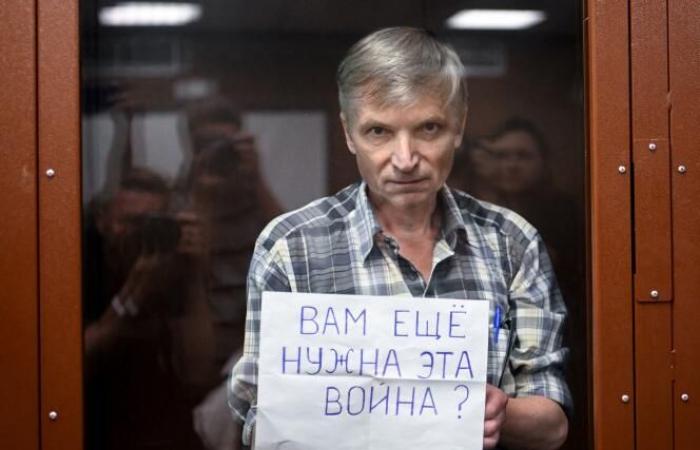Letters, to support and resist. Every last Thursday of the month, a few dozen Muscovites meet in the heart of Moscow, in a room at the headquarters of Yabloko – the liberal party inherited from the 1990s, still alive –, to write postcards to political prisoners. On the tables, among the photos and names of the recipients behind bars, some faces of famous prisoners stand out.
But, more than two and a half years after the start of the“special operation” According to the Kremlin’s statement in Ukraine, most of the Russians arrested for opposing the military offensive and President Vladimir Putin’s regime are anonymous citizens. “More than seven hundred! Caught up by the grinding machine of our justice. We must not forget them”insists Anna Shatounovskaya, organizer of these evenings “postcards”.
The 1is In August, Russia and the West exchanged twenty-six of their nationals (twenty-four adults and two children), the largest prisoner exchange since the end of the Cold War. In exchange for an agent convicted of assassination in Germany and a couple of spies arrested in Slovenia, the West obtained the release of Americans, including Evan Gershkovich, correspondent for the Wall Street Journal in Moscow, but also of several figures of the Russian opposition such as politicians Vladimir Kara-Murza and Ilya Yashin or human rights activist Oleg Orlov, activists Lilia Tchanycheva and Ksenia Fadeïeva, artist Alexandra Skotchilenko. These names and faces have long been on the tables of Yabloko. Every Thursday evening, ordinary Muscovites came to write them postcards.
Read also | Article reserved for our subscribers The prisoner exchange between the West and Russia is the largest since the fall of the Soviet empire
Add to your selections
A month after the exchange, the ritual continues. “Some have been released. But all the others remain… It is impossible to remain inactive, like the majority of Russians! This is our way of supporting the opponents and, in the face of the Kremlin, of resisting.”breathes Olga, one of the volunteers met on Thursday, August 29. As the others, she prefers to remain anonymous. A precaution in the face of the growing repression against any critical voice.
“It feels good to be in this room again. We don’t feel alone.”reassures this mother in her forties. That evening, from the student to the babushka, there were nearly fifty people methodically writing and signing these postcards. One Thursday, they even exceeded the threshold of one hundred participants. Once, pro-Kremlin provocateurs showed up, which led to the intervention of the police.
You have 60.61% of this article left to read. The rest is reserved for subscribers.







